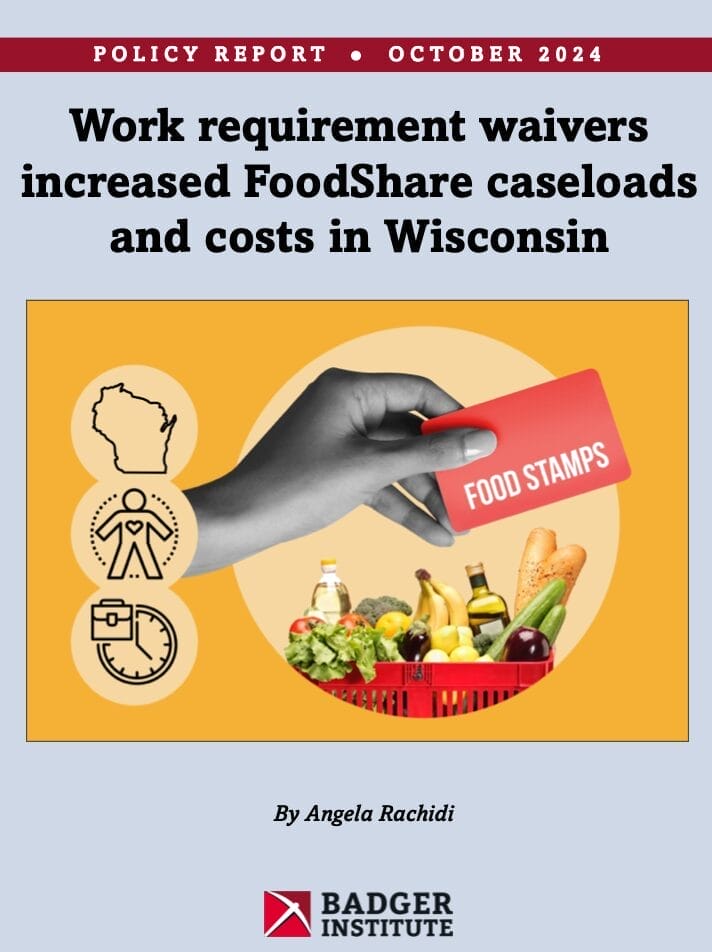There are ways to reverse the damage state policies did
Employment plays a crucial role in helping families escape poverty and move up the income ladder. The Temporary Assistance for Needy Families program, created through welfare reform in 1996, showed that linking government assistance to work could increase employment and decrease poverty among single-mother families.
The Supplemental Nutrition Assistance Program, commonly known as food stamps, also contains a work requirement. In this report, Badger Institute Visiting Fellow Angela Rachidi explores how its usefulness has been blunted.
Able-bodied adults without dependent children — abbreviated as ABAWDs — can receive SNAP benefits for only three months in a three-year period unless they worked or participated in a work-like activity for 80 hours on average per month.
This requirement, however, has been far from absolute. Federal lawmakers allowed states to waive it in certain circumstances, and Wisconsin officials have done so much of the time.
The result has been higher FoodShare caseloads and expenditures, likely leading to less employment and more government dependency.
Here, Rachidi analyzes FoodShare data from 2012 to 2023. Her results suggest that waiving the work requirement led to an increase of 780 adults receiving FoodShare on average per county per month during this time — approximately 56,160 more FoodShare adults across the state.
What can Wisconsin do? Rachidi recommends this:
- Fully implement the federal ABAWD work requirement in Wisconsin without exception by passing a law barring the Wisconsin Department of Health Services from applying for ABAWD waivers.
- And fully fund and enforce a 2017 Wisconsin law that requires all non-elderly, able-bodied FoodShare adult recipients who aren’t caring for children to work or take part in a training program.
Rachidi’s paper builds on her earlier work for the Badger Institute in continuing and strengthening Wisconsin’s history of innovation in welfare reform. Some highlights of that work include:
- A look at the slow rebound in employment after the pandemic, and the role government income support programs played.
- A chapter in our “Mandate for Madison” policy workbook in which Rachidi outlined how waivers in federal requirements on welfare programs could allow Wisconsin to innovate work-encouraging and family-supporting changes.
- Testimony to the Wisconsin Legislature on the benefits of work requirements in FoodShare.
More of her work for the Badger Institute can be found here.
Any use or reproduction of Badger Institute articles or photographs requires prior written permission. To request permission to post articles on a website or print copies for distribution, contact Badger Institute President Mike Nichols at mike@badgerinstitute.org or 262-389-8239.
Submit a comment
"*" indicates required fields





